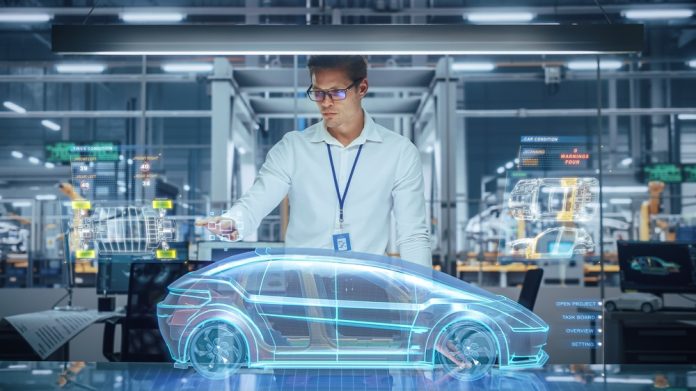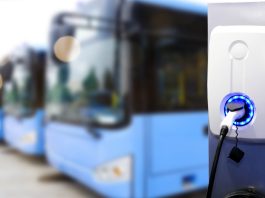The US Government has announced it will invest $50m to advance EV manufacturing capacity across six key states.
Funded via the Department of Energy (DOE) as part of the $2bn Domestic Automotive Manufacturing Conversion Grant program, the funding will enable small- and medium-sized suppliers to adapt their manufacturing facilities to support the EV supply chain.
Funding will be focused on six states with historically significant automotive workforces, helping to drive high-paid union jobs in the EV manufacturing sector.
US Secretary of Energy Jennifer Granholm commented: “By helping states and manufacturers navigate the emerging EV manufacturing industry, today’s announcements will help ensure the workforces that defined America’s auto sector for the last 100 years will have the opportunity to shape the next 100 years.”
Expanding domestic manufacturing is imperative for the US
Reinforcing domestic EV manufacturing capabilities is essential for the US to maintain global competitiveness, secure economic growth, and meet environmental goals.
As the global automotive industry pivots toward electric vehicles, the US must scale its manufacturing capacity to avoid reliance on foreign suppliers, particularly in critical areas like batteries and semiconductors.
Strengthening domestic EV production not only ensures supply chain resilience but also positions the US as a leader in the emerging green economy.
Investing in EV manufacturing creates high-quality jobs and revitalises communities, particularly in regions historically dependent on traditional automotive industries.
Moreover, boosting EV production aligns with national environmental objectives, helping the US reduce greenhouse gas emissions and combat climate change.
As other countries ramp up their EV capabilities, the US risks falling behind without substantial investment and policy support.
By reinforcing its domestic EV manufacturing infrastructure, the US can lead in this transformative industry, drive economic prosperity, and achieve energy independence while also ensuring that the benefits of the green economy are widely shared across all communities.
EV manufacturing: State allocations and federal support
The DOE announced state allocations following an April 2024 Request for Information (RFI).
The RFI sought feedback from various entities on potential state-federal partnerships to enable federal funding for automotive suppliers transitioning to serve electric, hybrid, or fuel cell vehicle supply chains.
Eligible grantees must be a state, territory, or the District of Columbia, with a workforce that includes at least 0.5% in the automotive sector.
They must also qualify for a minimum of $4m in grant funding. The following six states meet this criteria:
- Michigan: $18,406,420.45
- Ohio: $9,373,236.32
- Indiana: $8,770,249.81
- Kentucky: $4,876,458.57
- Tennessee: $4,513,688.68
- Illinois: $4,059,946.17
Applications are due by 15 October 2024 at 5:00 pm ET.
Advancing America’s clean energy workforce
The DOE is also awarding $1.5m to three technical assistance teams under the expanded ITAC program.
Led by Purdue University, the University of Michigan, and the University of Illinois, these teams will develop a Small Supplier EV Transition Playbook, in collaboration with Argonne National Laboratory.
This playbook aims to guide internal combustion engine suppliers in transitioning their business models to serve the EV manufacturing market.
The ITAC program is designed to build a diverse, skilled clean energy workforce and strengthen America’s EV manufacturing base to lead the global clean energy transition.
It provides assessments to small- and medium-sized manufacturing firms, identifying efficiency upgrades that reduce costs and enhance national manufacturing capabilities.
These initiatives by the DOE represent a critical step in driving the transition to EV manufacturing while supporting the growth of a skilled clean energy workforce.
By investing in state partnerships, technical assistance, and equitable energy solutions, the DOE is laying the groundwork for a more sustainable and competitive automotive industry that benefits all communities across the nation.









